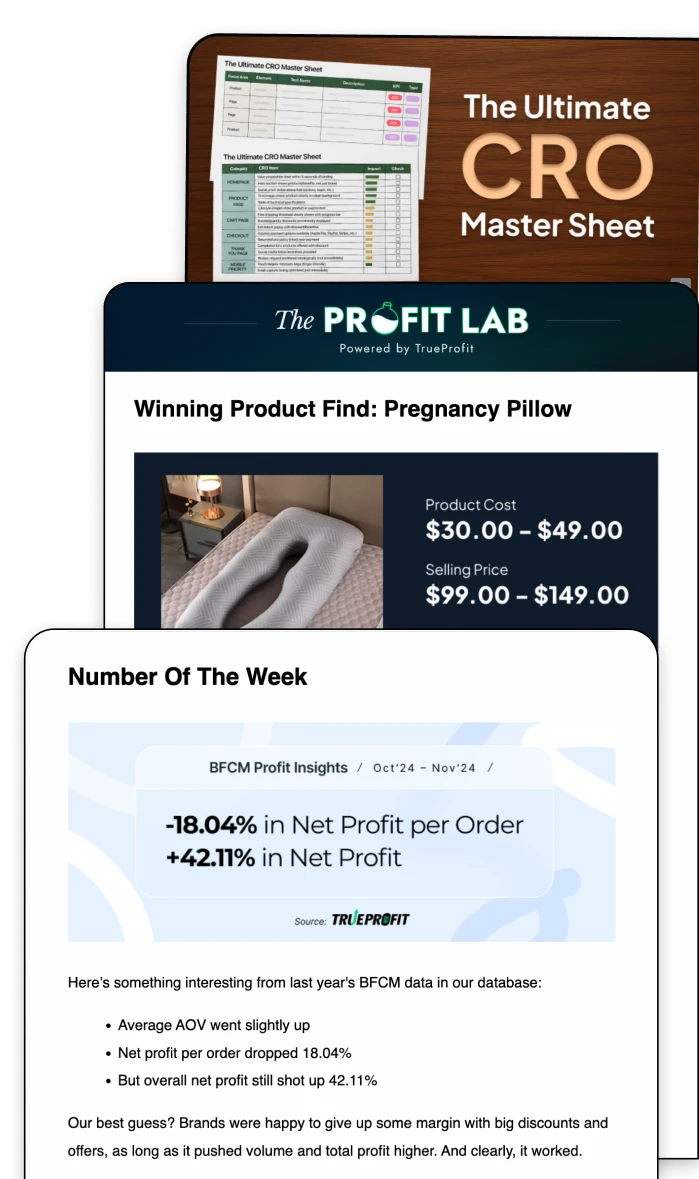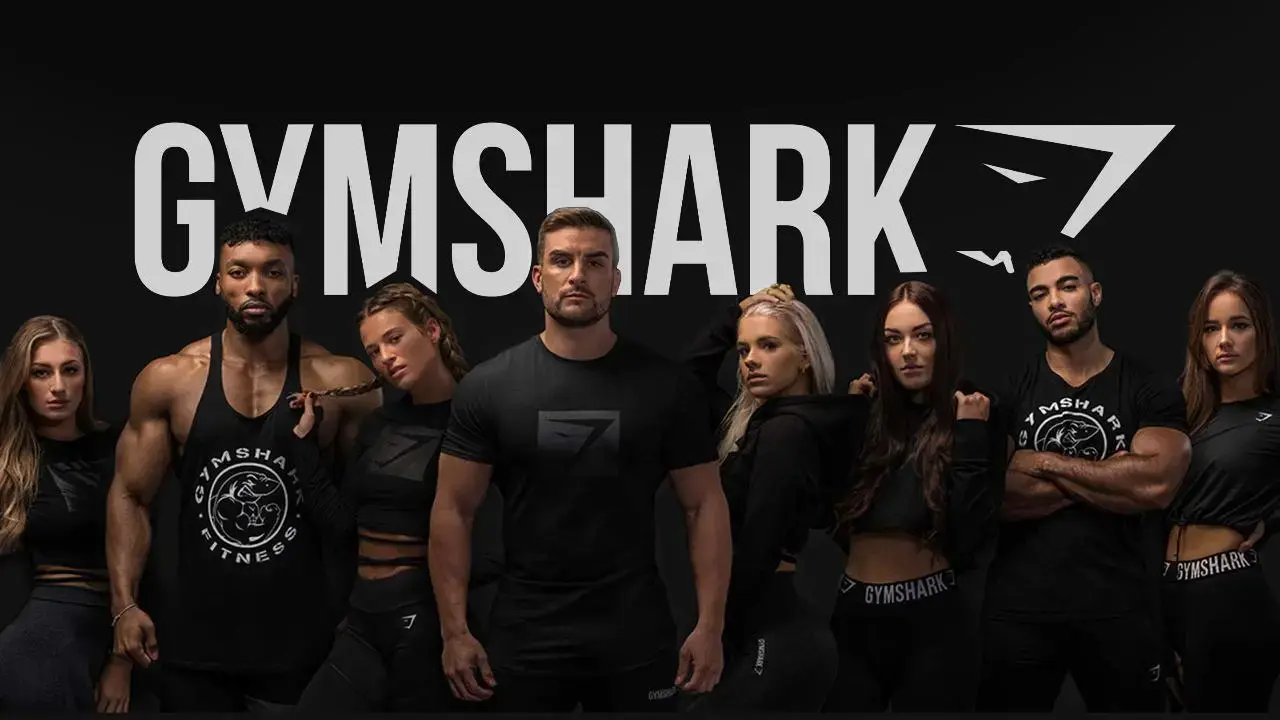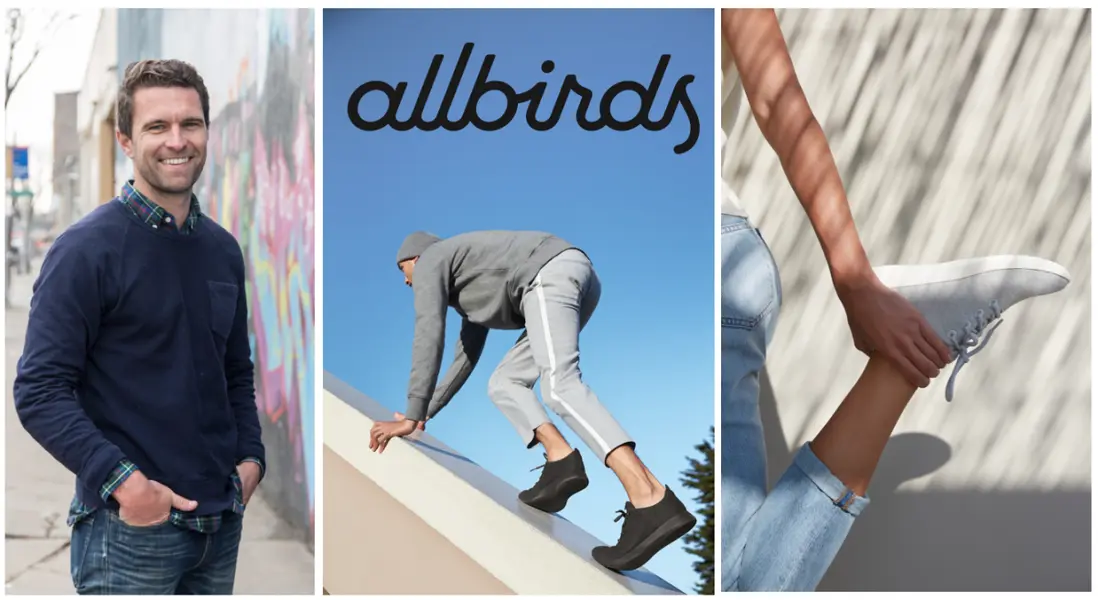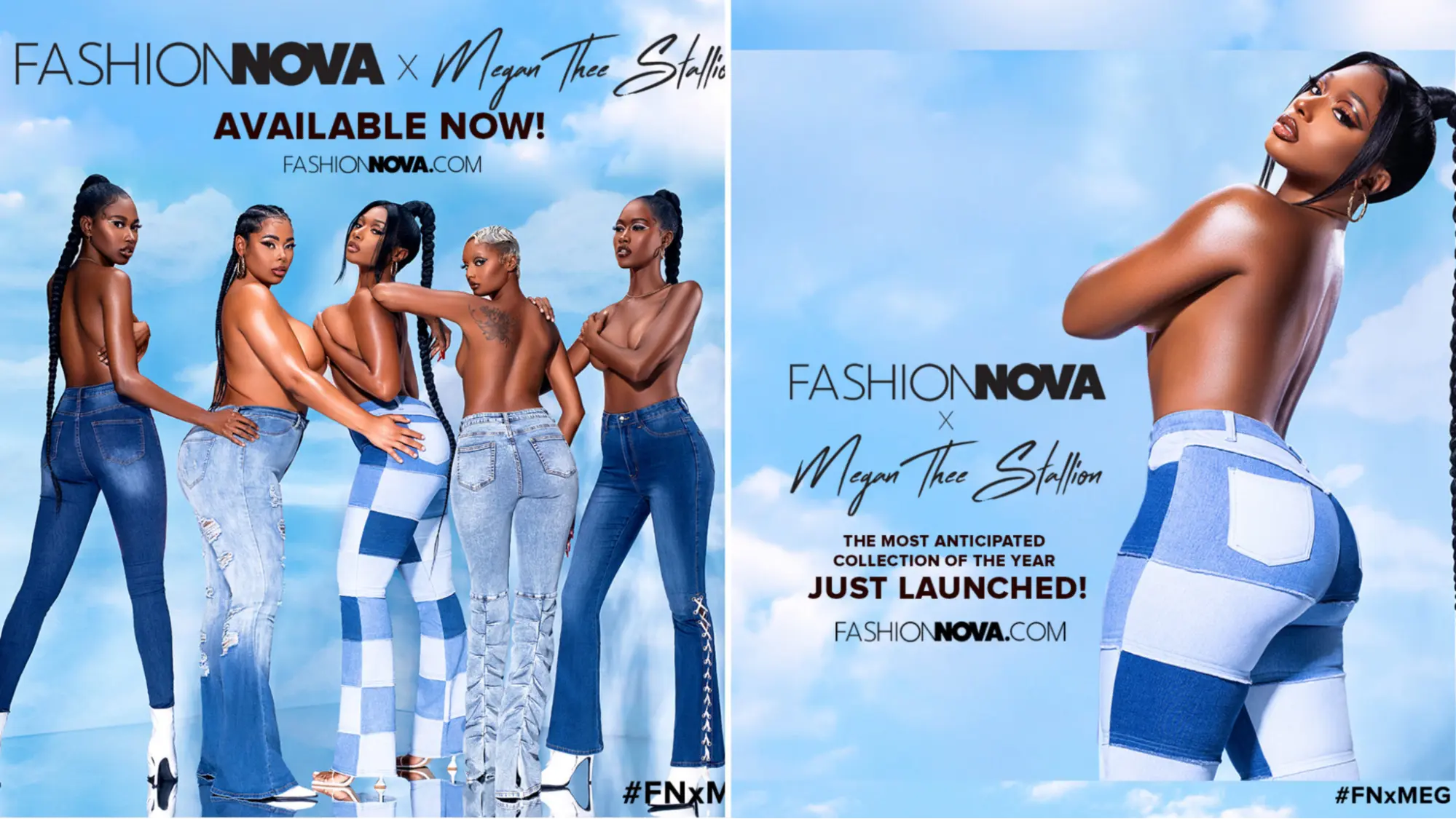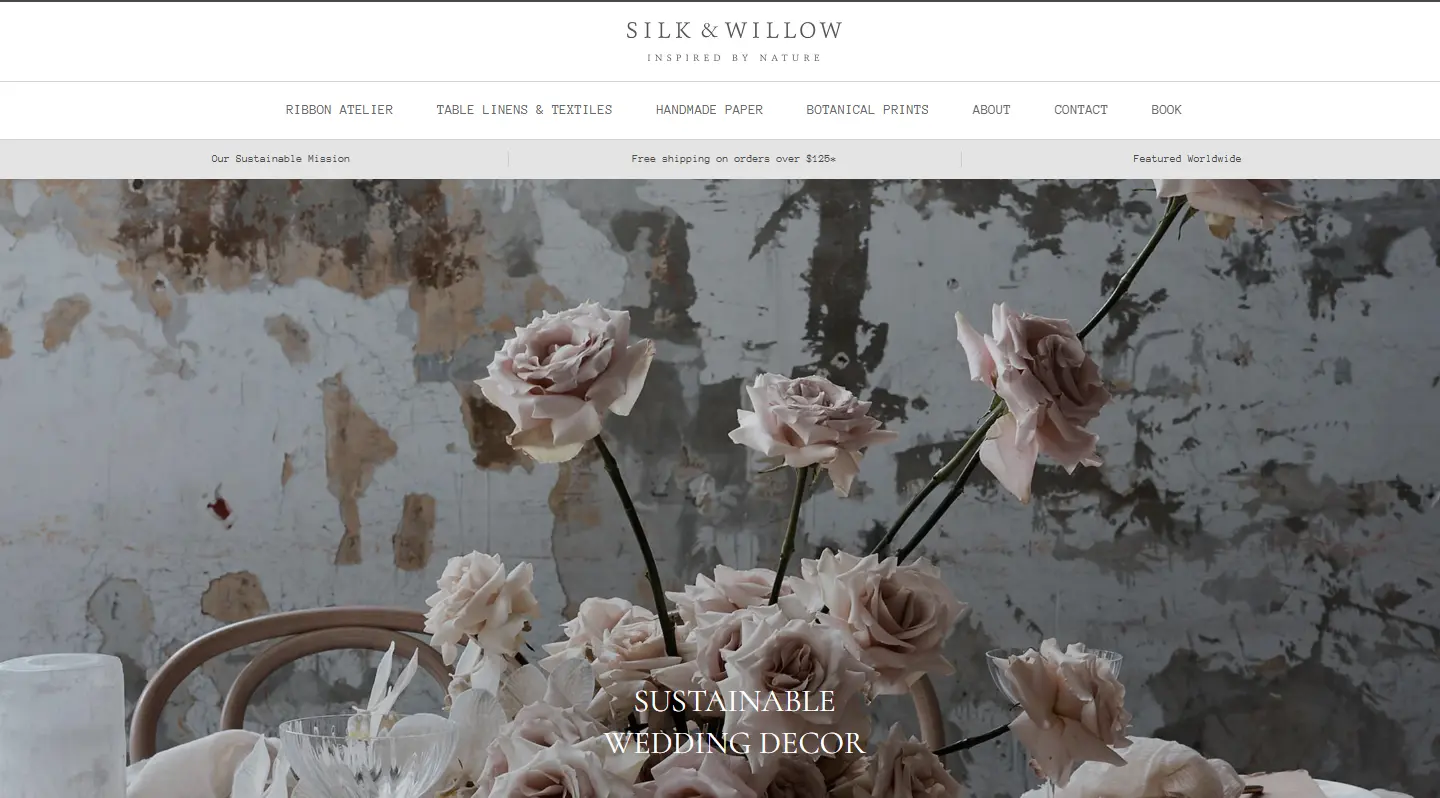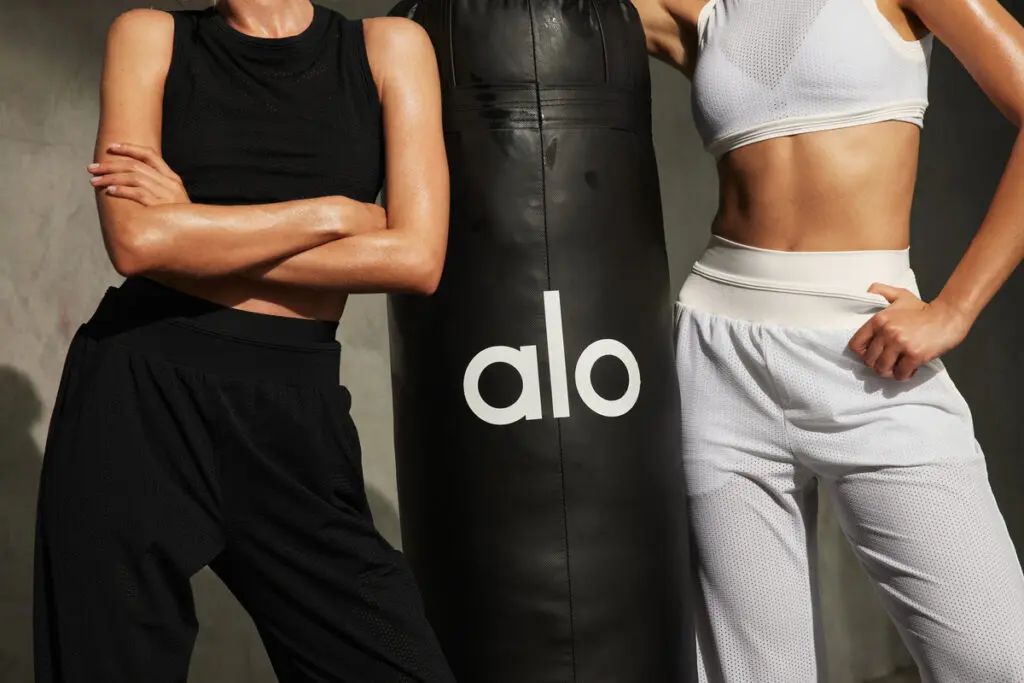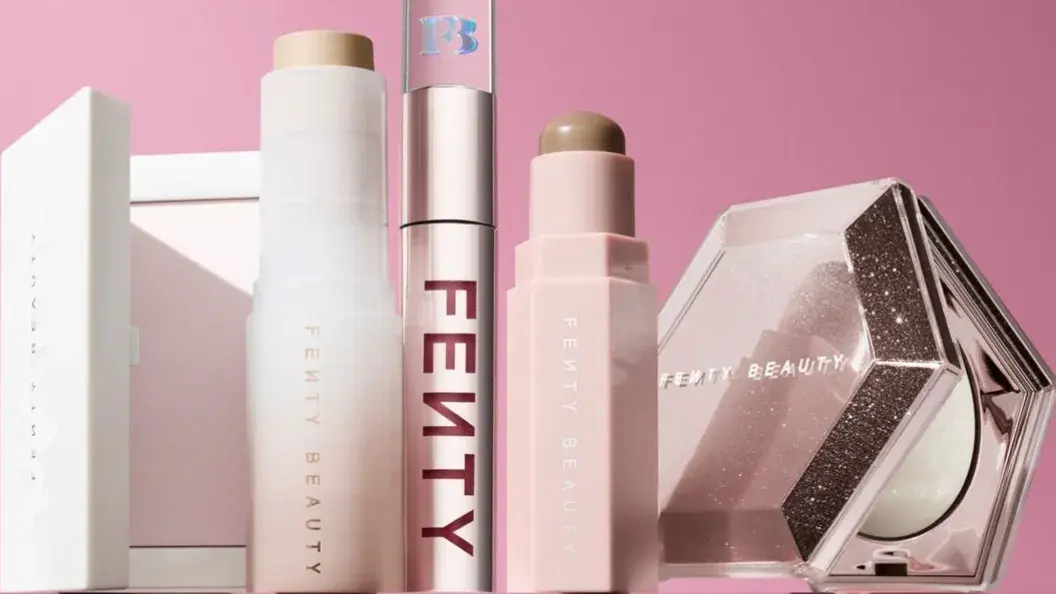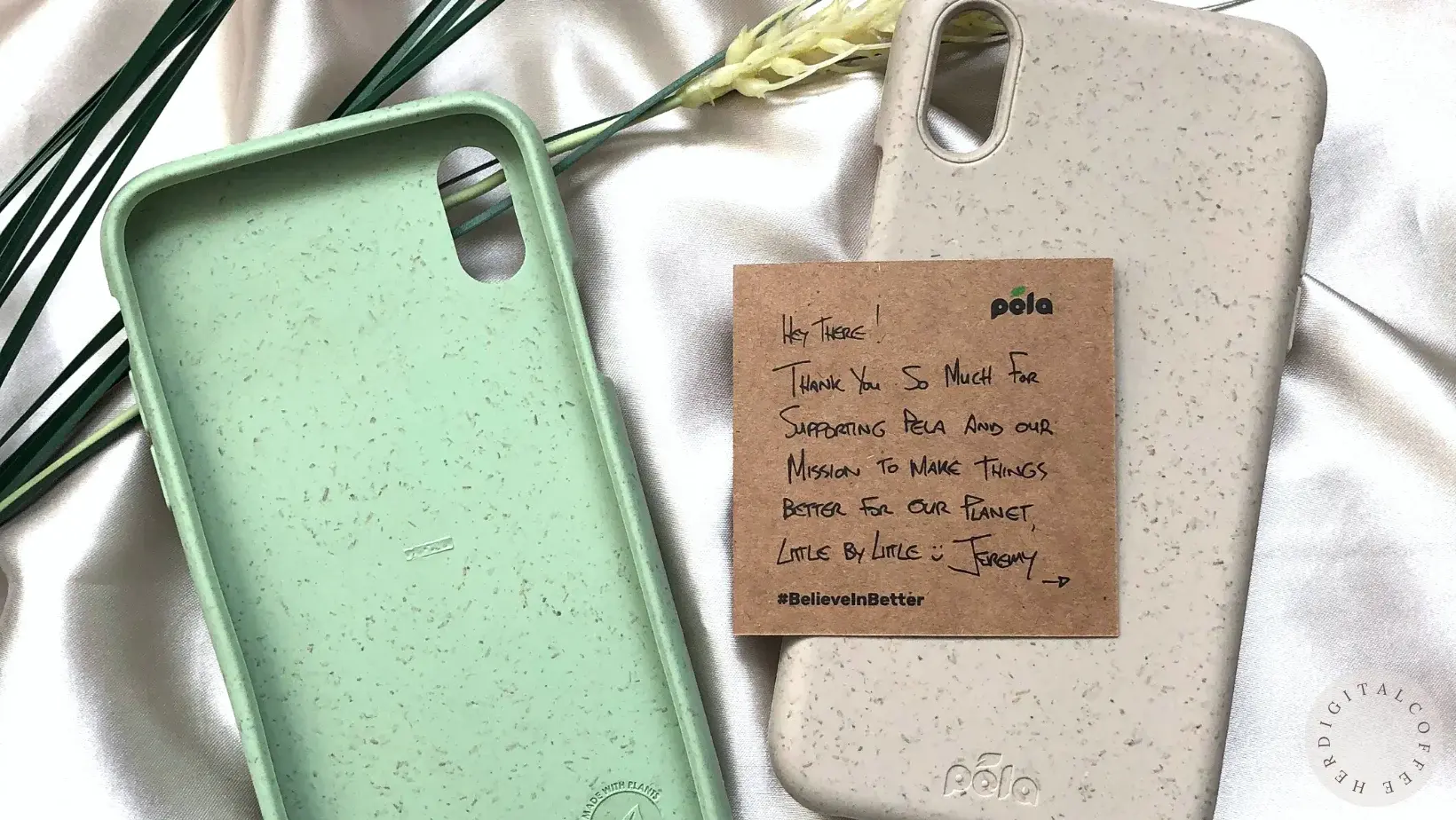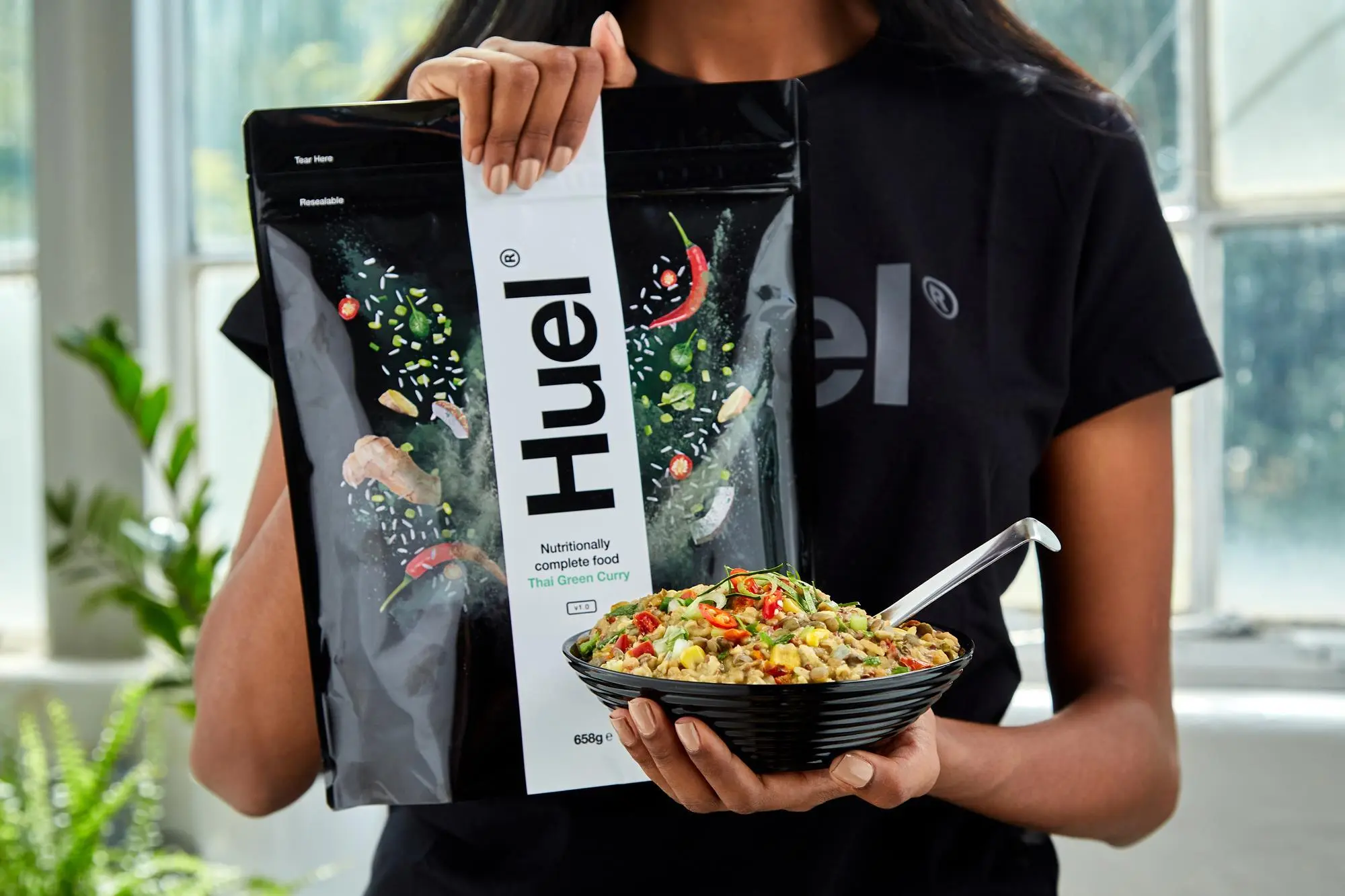7+ Top Shopify Stores to Inspire Your Brand in 2026
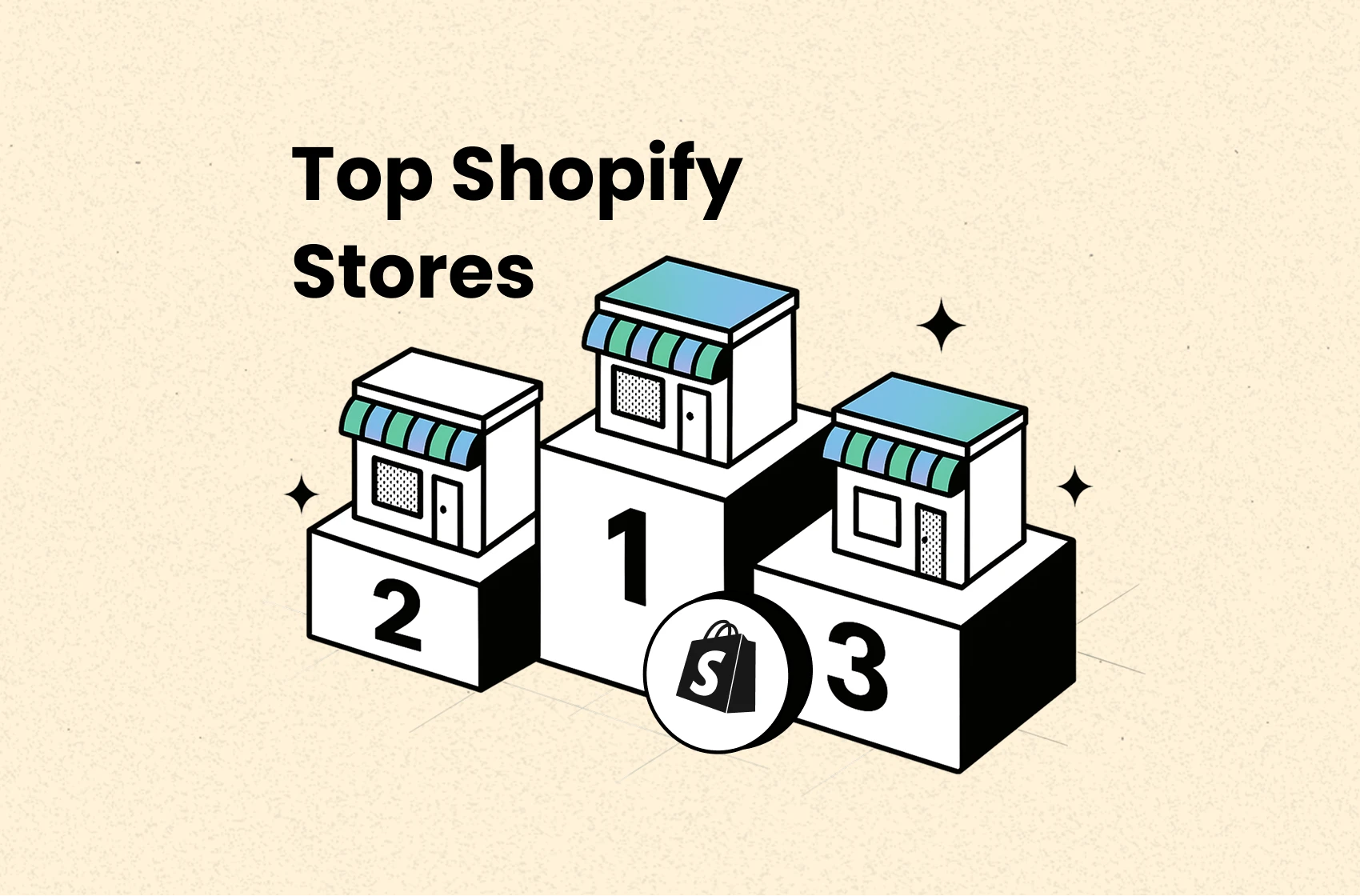
If you’ve ever wondered what success on Shopify really looks like, start here.
In this list, you’ll find 7+ top Shopify stores worth studying in 2026. From how they structure their site to how they track key metrics, these examples are full of ideas you can apply to your own store.
In this blog:
Top Shopify Stores Across Industries (2026 Edition)
1. Gymshark
Industry: Fitness apparel
Annual revenue: $709 million
Country: UK
Gymshark started as one of the high profit margin small businesses based in UK, built by a 19-year-old student. Fast forward, it’s now a global fitness brand running on Shopify. But they didn’t just sell gym wear, they built a fitness lifestyle around it. Their store links with the Gymshark Training App, giving buyers free workout plans and fitness tips.
2. Allbirds
Industry: Footwear
Annual revenue: $254+ million
Country: USA
Allbirds started with one simple idea: make comfy shoes out of natural materials. Today, they’re a major player in the Shopify world, known for clean design, smooth site experience, and a strong eco-friendly message. They use Shopify POS (Point of Sale) to connect their retail stores with their online shop, which helps manage inventory and cut down on shipping costs. Their site features big, bold images, clear calls-to-action (CTAs), and a brand story that puts sustainability front and center.
3. Fashion Nova
Industry: Fashion
Annual revenue: $4+ million
Country: USA
Fashion Nova blew up by staying fast: fast fashion, fast drops, fast reactions to trends. They built hype through influencers and made their Shopify store feel like a constantly updating feed. Think flash sales, countdown timers, and real-time restock alerts. Plus, they lean hard into inclusivity with size options for all body types. The result? A store that feels alive, social, and always one step ahead.
4. Silk & Willow
Industry: Wedding décor
Annual revenue: < $5 million
Country: USA
Silk & Willow is a small-but-mighty Shopify store that built its brand around handcrafted, naturally dyed wedding décor.
Their Shopify marketing strategy is simple: Make sure every product has a poetic name, like “Coreopsis Sage” or “Teal Marigold”, giving the store a soft, elegant vibe.
They also offer a Seconds collection, where imperfect items are sold at a discount (a great move for both sustainability and cash flow). It’s a niche store, but one that feels curated, personal, and made with care.
5. Alo Yoga
Industry: Clothing
Annual revenue: $250 million
Country: USA
Alo Yoga isn’t just about selling activewear, it’s about selling a full wellness experience. Their Shopify store goes beyond clothes, offering yoga classes, meditation content, and even a mixed-reality fitness app called Alo Moves XR. Everything is sleek, easy to browse, and tied together with a focus on lifestyle, not just products. The store feels more like a digital studio than a typical eCom site.
6. Fenty Beauty
Industry: Beauty
Annual revenue: $600 million
Country: USA
Fenty Beauty, founded by Rihanna, flipped the beauty industry by making inclusivity the standard, not a niche. Their Shopify store offers a seamless online experience, with tools like the Fenty Face Shade Finder to help customers find the right product without guessing. High-res before-and-after photos build trust, and the Rihanna’s Picks section gives shoppers a curated entry point. It’s clear, visual, and built for confidence.
7. Pela
Industry: Consumer electronics accessories
Annual revenue: $4 million
Country: Canada
Pela makes eco-friendly phone cases and they walk the talk when it comes to sustainability. Their Shopify store features a 360 Recycling Program that lets customers send back used cases to keep them out of landfills. They also offer a plastic-free checkout and a “Make Your Own Case” tool, so shoppers can customize designs. On top of that, real customer photos (UGC) show how the products look and feel in everyday life.
8. Huel
Industry: Nutrition and lifestyle
Annual revenue: $266 million
Country: UK
Huel (short for “Human Fuel”) built its Shopify store around one promise: healthy meals without the hassle. Every product includes a simple, science-backed nutritional breakdown, no guesswork, no fluff. Customers can subscribe to personalized meal plans or try formulas like the Daily Superblend, made for busy people who still want to eat right. It’s clean, modern, and optimized for speed, just like their meals.
What Makes a Shopify Store Successful?
The top Shopify stores don’t get there by accident. From profit-first thinking to tracking every dollar in and out, these brands operate with intention. Here are 10 things the best stores consistently do:
1. Build a Site That’s Easy to Shop
Top stores guide users smoothly from homepage to checkout. They constantly update proven tactics on how to promote Shopify store. Use clean navigation, remove clutter, and test their sites like a first-time visitor. Every extra click costs conversions.
2. Optimize Their Store for Search
SEO is a long game — but it’s how top stores win consistent, free traffic. That starts with fast site speed, mobile-first design, and optimized product pages. Use Shopify’s built-in tools like meta titles, descriptions, and rich snippets to help Google understand your store. Want a shortcut? Start with our Shopify SEO for Beginners guide.
3. Use High-Quality Product Images
Good images don’t just look nice — they help convert. Clear, close-up shots from multiple angles build trust and reduce returns. The best Shopify stores treat every product page like a sales page.
4. Invest in Paid Ads (If You Track Them Right)
Paid ads work — when you can see what’s working. Shopify stores that scale know how to calculate Net Profit on Ad Spend, not just ROAS. If you’re spending without clear attribution, you’re guessing.
5. Track More Than Just Traffic
Getting clicks is easy. Tracking which ones convert and which drive profit is where growth happens.
Ready to Build Your Own Profitable Shopify Store?
Building a successful Shopify store isn’t about copying layouts or chasing trends, it’s about understanding what actually drives results. As you’ve seen from these top Shopify brands, the common threads are clear: strong branding, smooth shopping experiences, intentional marketing, and (most importantly) profit-first thinking. The best stores don’t just focus on traffic or revenue, they track every dollar in and out so they can make smarter decisions and grow sustainably.
If you’re serious about turning your Shopify store into a real business (not just a side project), having clear visibility into your numbers matters. That’s where tools like TrueProfit quietly fit in, helping Shopify sellers see their real net profit in one place, without spreadsheets or guesswork. It’s why many sellers trust it as the #1 net profit analytics solution for Shopify: so they can stop chasing vanity metrics and start building stores that actually make money.

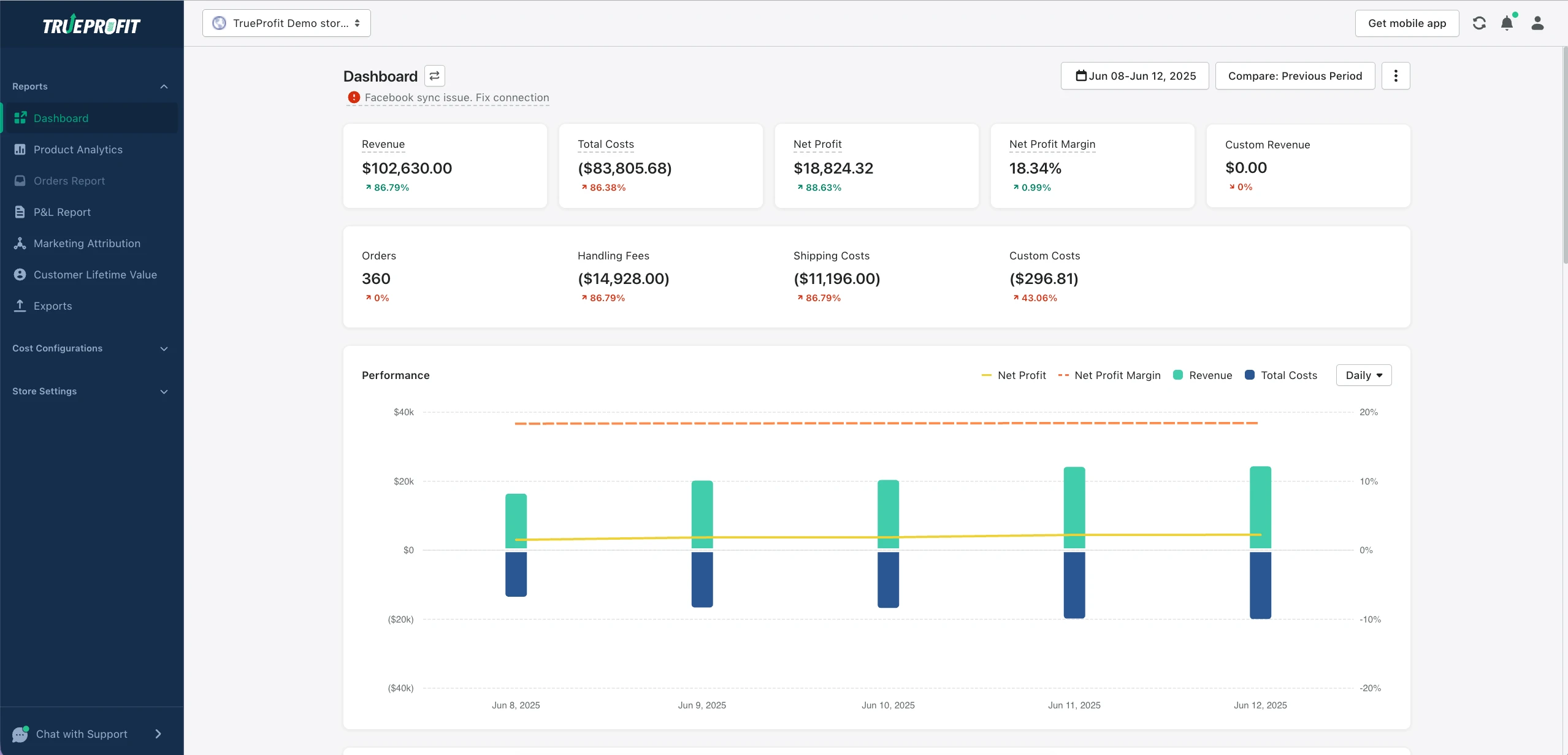
Leah Tran is a Content Specialist at TrueProfit, where she crafts SEO-driven and data-backed content to help eCommerce merchants understand their true profitability. With a strong background in content writing, research, and editorial content, she focuses on making complex financial and business concepts clear, engaging, and actionable for Shopify merchants.

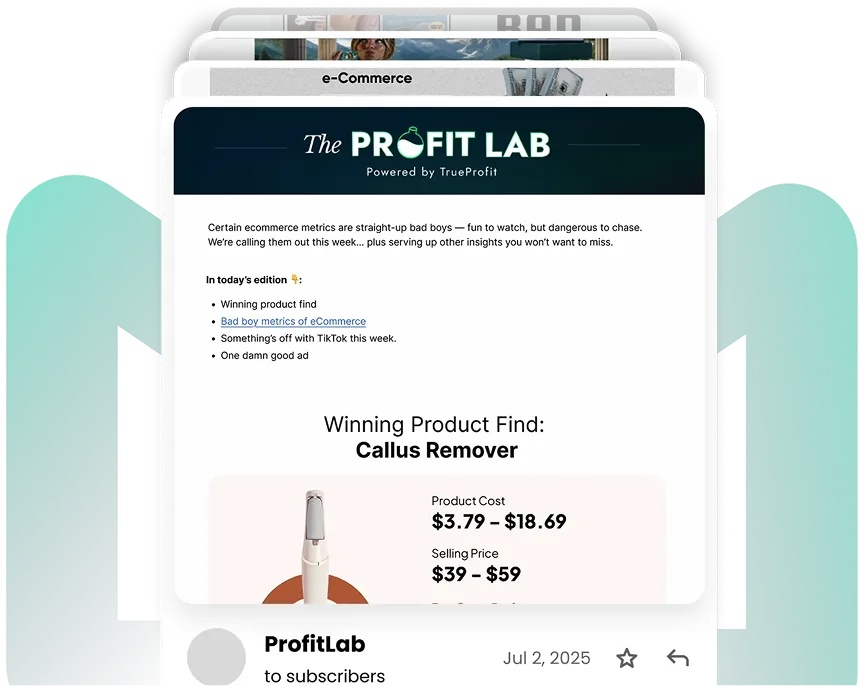
 Shopify profits
Shopify profits